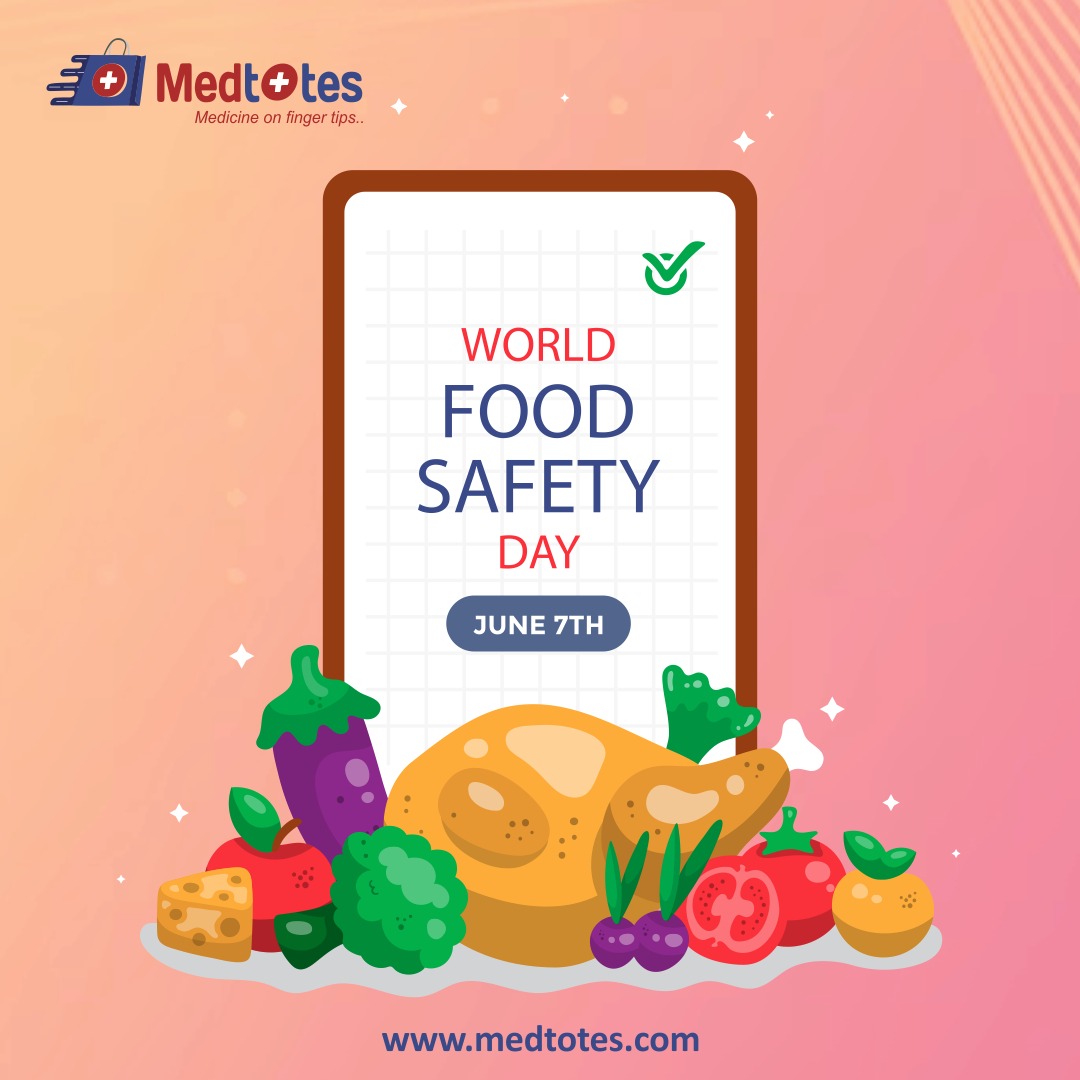June 7 is World Food Safety Day. The United Nations Food and Agriculture OrganizationSponsors World Food Safety Day and has picked “Food Standards Save Lives” as the theme of 2023. This year’s theme coincides with the 60th anniversary of Codex Alimentarius, a collection of food standards, guidelines, and also codes of practice adopted by the international Codex Alimentarius Commission (in which FDA participates across many committees) to encourage governments and food safety advocates worldwide to emphasize the importance of applying safety standards in all aspects of food production—from the source to the table. Access to enough safe food is critical to maintaining life and good health. Foodborne infections can be contagious or deadly, typically unseen to the human eye. Bacteria, viruses, parasites, or chemical compounds that enter the body through contaminated food or drink cause them. Standards provide guidelines to farmers and processors on sanitary food processing and set maximum quantities of additives and pollutants, among other components, that can be safely consumed. Governments, organizations, and regional or multinational groups set such standards.
World Food Safety Day ensures that food safety standards are followed to ensure all consumers’ health. With an estimated 600 million cases of foodborne disease each year, unsafe food threatens human health and the economy, disproportionately affecting vulnerable and marginalized groups, including women and children, conflict-affected populations, and migrants. Every year, an estimated 420 000 people worldwide die from eating contaminated food, and children under five account for 40% of the foodborne disease burden, accounting for 125 000 deaths. The Codex Alimentarius Commission, is one of the organizations in charge of establishing international food safety and quality standards. Food safety is critical for guaranteeing food safety at all phases of the food chain, from cultivation to harvest, processing, storage, distribution, preparation, and consumption. Water contamination is another big issue.
On June 7, World Food Safety Day strives to increase awareness and inspire action to help, avoid, detect, and control foodborne risks, contributing to food security, human health, economic prosperity, agriculture, market access, tourism, and sustainable development. In partnership with Member States and other relevant organizations, the World Health Organization (WHO) and the Food and Agriculture Organization of the United Nations (FAO) jointly organize World Food Safety Day. This international day provides an opportunity to redouble efforts to assure the safety of the food we eat, mainstream food safety on the public agenda, and reduce the global burden of foodborne infections. Eating safe food is one of the most important determinants of good health. Unsafe diets cause various diseases and contribute to other health problems, such as impaired growth and development, micronutrient deficiencies, communicable or no communicable diseases, and mental illness. According to the WHO, one out of every ten persons worldwide is infected by foodborne infections yearly. The action-oriented campaign promotes global food safety awareness and calls on countries and decision-makers, the private sector, civil society, UN organizations, and the general public to take action under the tagline “Food safety, everyone’s business.”
Conclusion:
How food is produced, stored, handled, and consumed affects food safety. Governments, international organizations, and corporations can help by adhering to developing robust regulatory food control systems, including disaster planning and response, ensuring access to safe drinking water, implementing good agriculture practices (terrestrial, aquatic, livestock, and horticulture), increasing food industry operators’ usage of food safety management systems and increasing customer capacity to make healthy food choices. An estimated 600 million people fall unwell yearly, and 420,000 die from consuming food contaminated with viruses, bacteria, parasites, or chemical compounds. Governments, producers, and consumers all have responsibilities for food safety. Understanding which foods are healthy and do not impair our health is critical. There is an adage that “health is wealth.” From farm to table, everyone must play in ensuring our food is safe and will not harm our health. World Food Safety Day is an endeavor by WHO and FAO to mainstream food safety into the public agenda and minimize the global burden of foodborne infections.
For More Information or Contact…!!!
𝗖𝗔𝗟𝗟: 040 35159159
WhatsApp: 7075490607
𝗩𝗶𝘀𝗶𝘁: https://www.medtotes.com/
Drop us an email at:- support@medtotes.com
Download app:
Android: https://bit.ly/3Q3gQw8
iOS: https://apple.co/3nknQIm

